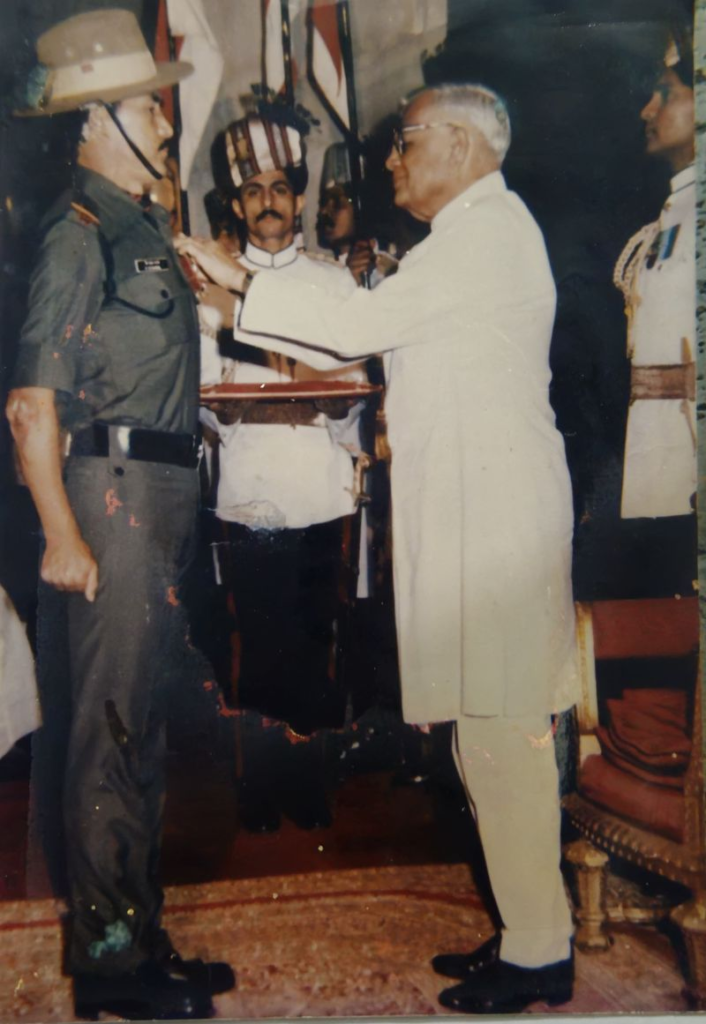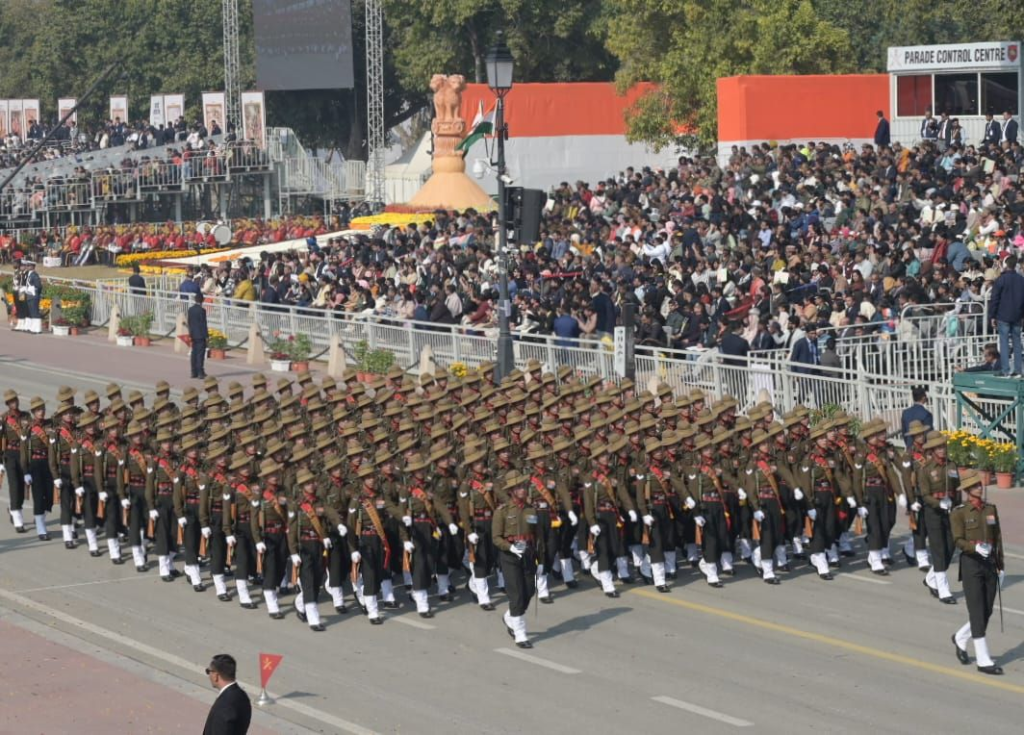
During the first phase of the Indian Peace Keeping Force (IPKF) operations in Sri Lanka in October 1987, 5/1 GR was among the first Indian battalions to be launched into action. During one such operation, while confronting militants’ firing with automatic weapons from built-up areas, Subedar Bhagwan Singh Rana went way beyond the call of duty and earned Vir Chakra.
Remembering those historic days, Subedar Rana told The Tribune, “After remaining posted in NEFA, Bangaldesh and Poonch, the unit was ordered to move to Gwalior. The very next day we were airlifted to Sri Lanka and just on the arrival were welcomed by heavy gunshots from the LTTE militants.”
Subedar Bhagwan Singh Rana (right) receives Vir Chakra from R Venkataraman, the then President. file
The battle account on Rana’s bravery reads, “During the Peace Keeping Mission in Sri Lanka starting in the middle of October 1987, Subedar Bhagwan Singh Rana was doing the duties of Platoon Commander of ‘A’ Company of 5/1 GR. During all cordon and search operations, including some hand-to-hand fights, with Tamil guerrillas, he displayed exemplary courage and always led from the front. The JCO was seriously wounded on October 20, 1987 during action but refused to be evacuated. He again showed courage and qualities of good leadership on November 8 while leading the advance to Manipay ahead of his platoon to assault and neutralise the Tamil guerrillas firing positions time and again. Again, on November 9, 1987, while leading his platoon during a house-to-house search to flush out the militants, the operation was held up due to heavy and accurate fire from the houses in the neighbouring locality. At that critical moment, Subedar Rana, undeterred, rallied his forward section and on the cry “Jai Mahakali – Aayo Gorkhali”, led the Gorkha charge on the houses where from the fire was coming.”
“During the operation, Subedar Bhagwan Singh Rana displayed exemplary leadership and outstanding personal gallantry for which he was awarded the Vir Chakra,” the citation adds.
Subedar Bhagwan Singh Rana, son of Juthe Rana, a soldier himself, was born in 1947 at Totarani village, Dharamsala Cantt, in Kangra district. After getting elementary education at Government School Forsythganj, Rana was enrolled into the Gorkha Rifles on April 27, 1964. After recruit training, he joined the newly raised 5th Battalion of the 1st Gorkha Rifles, commonly referred to as 5/1 GR. Rana got married to Kamlesh Kumari in 1978. Now 78, Rana lives with his family at Dari near Dharamsala.
He rose to the rank of Subedar Major and retired from the active service with the rank of Honorary Captain after serving the Army as a decorated soldier for almost three decades.




















































































































